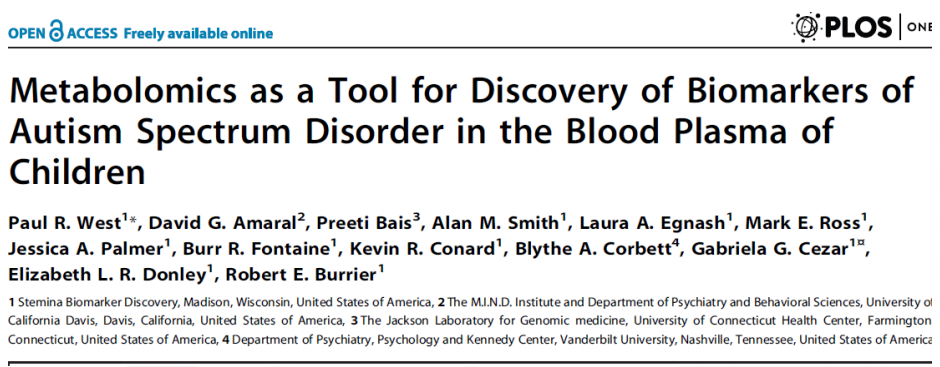Prior to our clinical study, the Children’s Autism Metabolome Project (CAMP) I, we participated in three smaller studies in collaboration with the UC Davis MIND Institute (Dr. David Amaral, Principal Investigator) and the Arkansas Children’s Hospital Research Institute (ACHRI).
The results of these initial studies motivated us to explore the connection between metabolism and autism further and provided proof of concept that metabolomics can identify autism spectrum disorder (ASD).
Read about the results of our study in our publication, West, P.R. et al. Metabolomics as a Tool for Discovery of Biomarkers of Autism Spectrum Disorder in the Blood Plasma of Children. PLoS One, 2014; 9(11): e112445.

